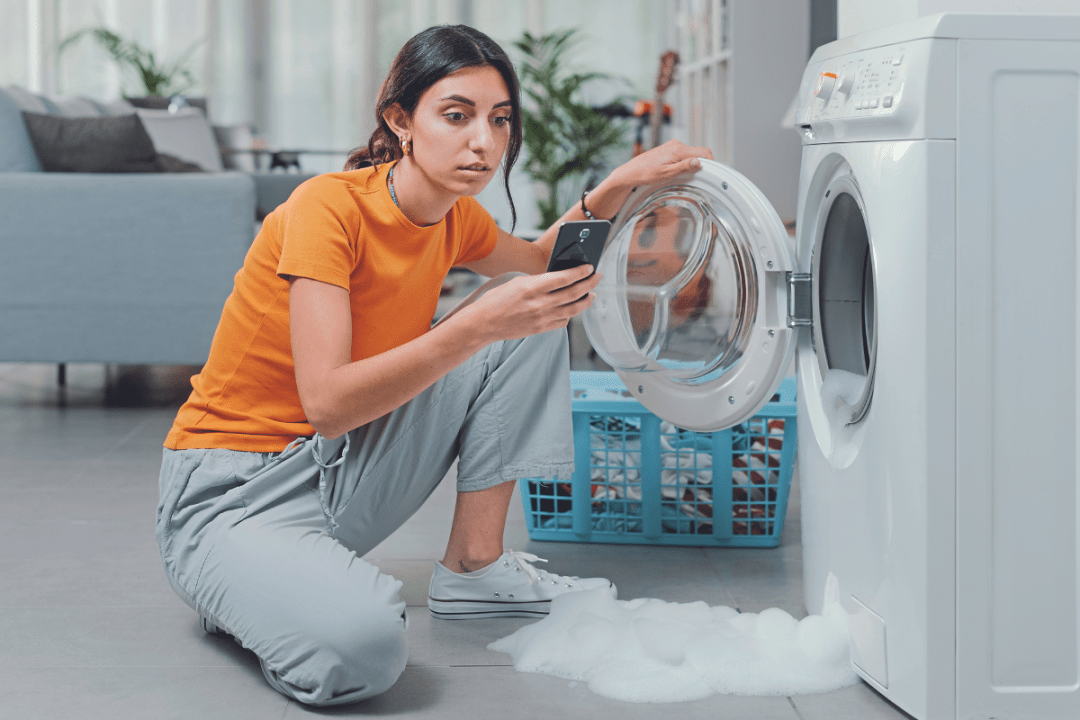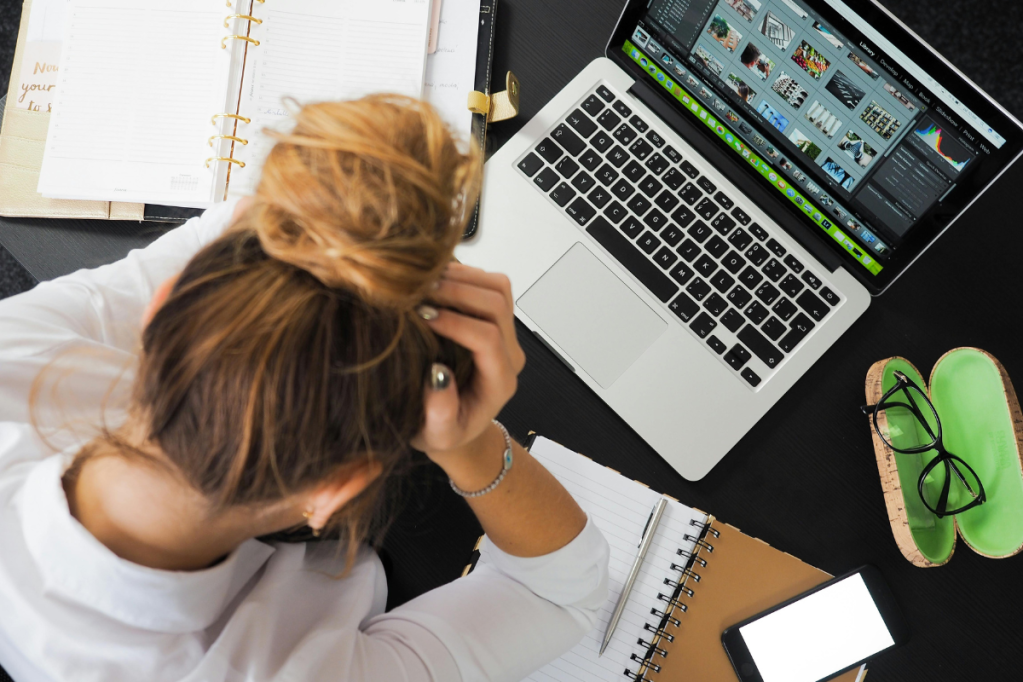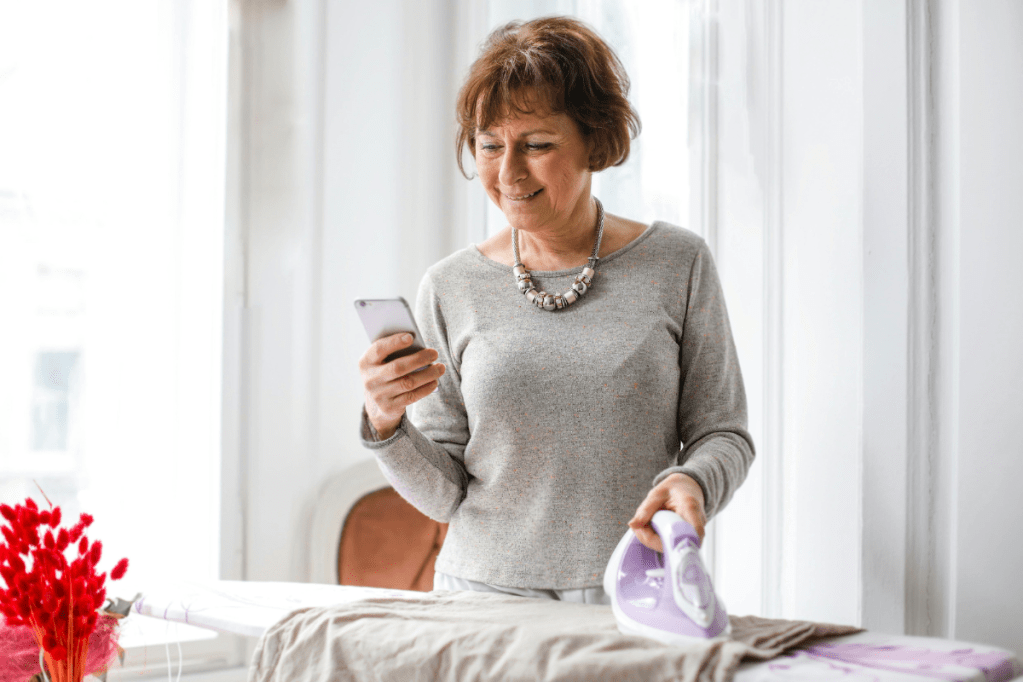Why your smartphone means you’re out of clean clothes
Could chasing the dopamine hit of checking your smartphone have you living out your life in panic mode? Dr Stephanie Fitzgerald finds out…

Could chasing the dopamine hit of checking your smartphone have you living out your life in panic mode? Dr Stephanie Fitzgerald finds out…
We can get a bit jaded about the advice around smartphones and the importance of disconnecting. Yes, we know about blue light and too much screen time impacting our sleep. Yes, we know that social media is responsible for negative comparisons to others, setting unrealistic expectations of – and subsequent disappointment in – our own lives.
And yet, it is still persistently difficult to put our phones down. We live in a constantly connected world, and much of our social interaction, our business connections, and our entertainment comes from the same device – which research shows 90 percent of us keep within arm’s reach 24/7!
It is hard to break away from the siren call of our screens, but what about the impacts that we aren’t told about? What about the challenges we don’t automatically link with our phone use? What if I told you that your phone is the reason why you don’t have any clean pants? Let me explain…

Smartphones are named as such because they are physically changing how our brains work – but it’s definitely not making us smarter. Human brains are reward-based. If we do something and receive a reward, our brain will want to do that thing again.
Research tells us that checking our phones, seeing a funny meme, or receiving a like releases a small dose of dopamine. Dopamine is a neurotransmitter that plays a role in how we feel, how we think, and how we plan. This mini-hit feels great but it is temporary, and so our brain seeks more. After all, who doesn’t want to feel good? However, the sheer number of times we reach for our phones means that we are finding it harder and harder to get a subsequent high.
Chamath Palihapitiya, former vice president of user growth at Facebook, explains that the short-term, dopamine-driven feedback loops created by social media activate the same neural pathways as cocaine and slot-machine addiction.
Like all addictions, the higher the usage, the higher the dosage needed to obtain the same hit. Our constant activation of these neural pathways means we get more dopamine out of social media than many interactions in our real lives. Social media is dampening the joy and reward we would otherwise get out of real-life engagements.
We previously worried about the impact of social media by focusing on the downsides of comparison and fear of missing out (FOMO), both of which are very valid concerns as they significantly impact our mood. But deeper impacts are happening. Our smartphones are rewiring our brains to be demotivated and less rewarded in real life. And this is a real problem.

If you have been struggling to get started on a task, that’s because, from a brain perspective, the greater and more instant reward will be your phone. In a world where we are constantly accessing dopamine and messing with the receptors in our brain, we almost need excessive stress to get anything done.
We won’t be motivated by the task itself; our lives cannot compete with the shiny dopamine-pumping machine that is our phone. This means that we need our stress response to be triggered to kick us into action, for even the smallest task. And this is about as relaxing as it sounds!
The Practical Implications
So, what’s all this got to do with your pants? Constantly needing to be stressed to achieve anything in your life is not fun, and there are practical implications. Needing to be late before you finally leave the house. Needing an imminent deadline before you get around to that report. Needing to run out of clean pants before you do your laundry.
It all adds up to a far more stressful life than it needs to be. Living in this constant state of stress response leads us to almost become stress seekers. We have over-stimulated and subsequently numbed our responses to the point where we need those panicky feelings to complete day-to-day tasks.

Steps to Reprogram Your Brain
If you’re reading this recognizing a change in your phone habits may be needed, or indeed sat in your swimmers because you didn’t quite get around to laundry day yet, then here are some practical steps you can take to start reprogramming your brain:
- Monitor Your Phone Use
If you are reaching for your phone, stop and ask what your intention is in that moment. Do you need a distraction? Are you bored? Would something else serve you better in those few moments?If we are using our smartphones to avoid unpleasant emotions, such as boredom or frustration, or because we are struggling to focus, then this could be a sign of smartphone dopamine issues. Monitor why and when you are on your phone, and try to reduce habitual scrolling. - Don’t Blame Yourself
It’s not a weakness to use your phone; your phone has trained you to do so. Next time you wonder why you never have enough time for you, or you feel overwhelmed or stressed, don’t blame yourself. Blame the device in your hand that is deliberately set up to stop you doing anything other than scroll. - Remember You Are Being Manipulated
Many of the apps and interfaces are designed to manipulate you into further use. They use a system called ‘variable reward scheduling’ that deliberately manipulates your brain’s dopamine reward systems by continually varying the ‘reward’ you get to keep you hooked. Knowledge is power, and knowing that this is happening to you means that you can make more conscious choices about when and where you will use your phone. - Increase the Friction
Research consistently shows that the proximity of our phones, even if we aren’t using them, impacts concentration and performance. Put your phone somewhere where there is just enough friction to interrupt mindlessly reaching for it. Maybe zip it into a pocket in your bag, pop it in a drawer or, better yet, leave it in another room.

I am not saying that you should never look at your smartphone ever again. In this day and age, that simply isn’t practical advice, and we cannot overlook the positives we gain from carrying our phones with us (without Google Maps I would constantly be sending out change-of-address cards, as I would have no idea how to get back home!). However, our mental health fluctuates, and how we engage with technology should fluctuate with it.
If you are struggling to achieve (or start) even the smallest of tasks and feel overloaded with pressures, then remember that your innocent-looking phone has a lot more control over you and your brain than you realize, and could be undermining every attempt you make to engage in your real life.
When we recognize the hold that our phones and scrolling habits have on us, we can make decisions to regain control, especially in times of stress. Keep an eye on your phone use and, if you have no clean pants to slip into, consider aeroplane mode for a while!
Dr Stephanie Fitzgerald is a chartered clinical psychologist, neuropsychologist, keynote speaker, and the author of several books, including Reworked: Putting Health And Happiness At The Centre Of Your Career (John Murray Press, £16.99). @stephfitzwrites
Words: Stephanie Fitzgerald. Images: Shutterstock / Pexels









